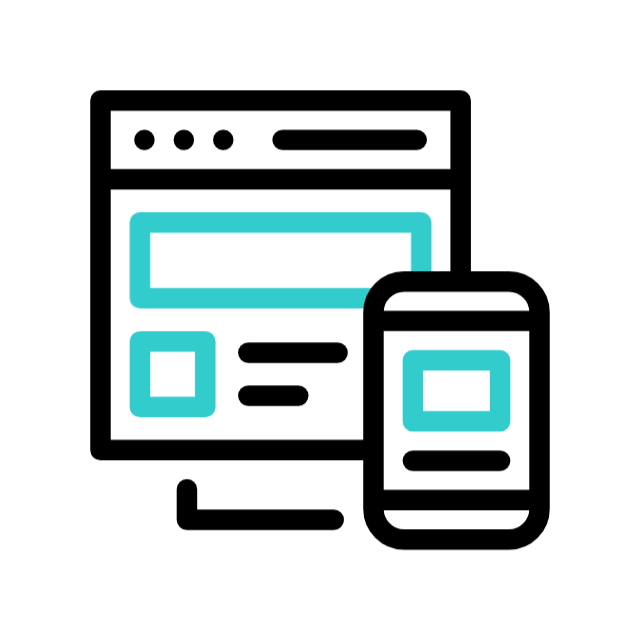About the Project
Iosta Design Studio, an early-stage interior design startup, sought to expand its online presence to attract a national audience and grow its clientele.
The challenge? Competing against established firms with limited completed projects to showcase.
My Role
As the sole UX designer and developer, I:
Aligned company goals with user needs to craft a credible online presence
Delivered a design solution that positioned the studio competitively in the market
Handled the project end-to-end, balancing research, design, and technical execution.
Note: Screenshots used in this case study are solely for illustrative and educational purposes. All rights to the original designs and content belong to their respective owners.
The Design Process
The Challenge
“As a new player in a competitive interior design market with limited projects to showcase, Iosta needed to establish an online presence that projected credibility and professionalism while standing out from established competitors.”
Insights from Research
To uncover opportunities for differentiation, I analysed the websites of 10 competitors across small and large firms. Key findings included:
Cluttered Layouts: Overwhelming users with unnecessary and excessive information.
Unclear Menus & Page Navigation: Poorly designed menus and unclear page hierarchy.
Weak Trust Signals: Lack of proper trust-building before call-to-action (CTA).
Over-reliance on Visuals: Using large images without meaningful context.
Our Approach
Streamlining the Information Architecture
Designed and refined multiple sitemap iterations to ensure intuitive navigation.
Focused on showcasing concise and user-relevant content.
Removed redundant and unnecessary information, keeping the website clean and easy to understand.
See the iterative process below.
A Contextualized Portfolio
Each project includes a brief 1-2 sentence overview to provide context about the work.
This gives potential clients a glimpse into the studio’s design approach and expertise.
Experimentation with Different Layouts
A separate page showcasing the project list and details, adding more structure to the layout.
A single page with both the project gallery and the details, reducing the number of clicks.
Final Refined Layout after Multiple Wireframing Iterations
Settled on a list + gallery layout: a concise list of all projects combined with a clean visual gallery, minimizing user effort to explore the portfolio.
Prioritising Clarity & Accessibility
Created layouts with balanced white space, clear visual hierarchy, and readable typography to improve navigation and content discovery.
Building Trust with the Audience
Introduced sections on the company ethos and the founders to build credibility before presenting a CTA.
Why It Works
Enhanced Professionalism and Trust
A clear and user-centred information architecture highlights the studio’s professionalism, making it easier for users to trust the brand.
Improved Clarity and Relatability
Contextual descriptions complement the visual portfolio, creating a more engaging and relatable experience for users.
Streamlined Navigation
Reducing unnecessary clicks and simplifying the user journey ensures effortless browsing, leading to a smoother experience.
Quick Access to Key Information
A well-organized layout allows users to easily find relevant details, fostering confidence in the studio’s services.
Additional Contributions
Custom Illustration & Icons
Designed unique visual assets aligned with the studio's branding to enhance website aesthetics.
Responsive Design Optimisation
Ensured consistent performance across all screen sizes for a smooth user experience.
Bridging Technical Gaps and Challenges
Assisted in navigating technical challenges, such as hosting setup and domain management, to ensure a seamless launch.
Impact Metrics
Current Metrics & What it Means?
Average Session Duration
Users spend 11 minutes and 45 seconds on the site, outperforming 93% of competitors globally.
Indicates strong engagement with content and usability.
Bounce Rate
Achieved a bounce rate of 40% in the initial month, which is better than 89% of competitors.
Suggests users explore beyond the landing page, validating intuitive navigation.
Organic Search Traffic
Low at 18%, currently better than only 20% of competitors.
Highlights the need for SEO optimization to improve discoverability.
Planned Metrics
Client Contact Rate
How many users initiated contact after visiting the website?
Client Conversion Rate
How many visitors converted into potential or existing clients?
Customer Reach
How far has the company’s clientele expanded due to the website?
Next Steps
SEO Optimisation
Improve organic traffic by adding location-based keywords and optimizing meta descriptions to rank higher in search results.
Dynamic Portfolio Updates
As new projects are completed, add filters and categorisation features to maintain the portfolio’s clarity and scalability.
Usability Testing
Conduct usability tests with target users to gather feedback on navigation, accessibility, and overall experience.
Performance Metrics
Regularly track key metrics like bounce rate, session duration, and conversions to refine the website further.
Personal Reflections
Design Leadership
Leading the project end-to-end—from concept to delivery—strengthened my ability to manage full-cycle UX projects and align design decisions with business goals.
Technical Integration
Overcoming technical challenges during implementation, like DNS setup & domain allocation, taught me how to bridge design and development efficiently.
Cross-Disciplinary Collaboration
Collaborating with interior design professionals broadened my perspective on aesthetics and functionality, deepening my appreciation for visual storytelling.
Thank You
All images and screenshots are used for illustrative purposes only. Copyrights belong to their respective owners.
Other Relevant Work




















